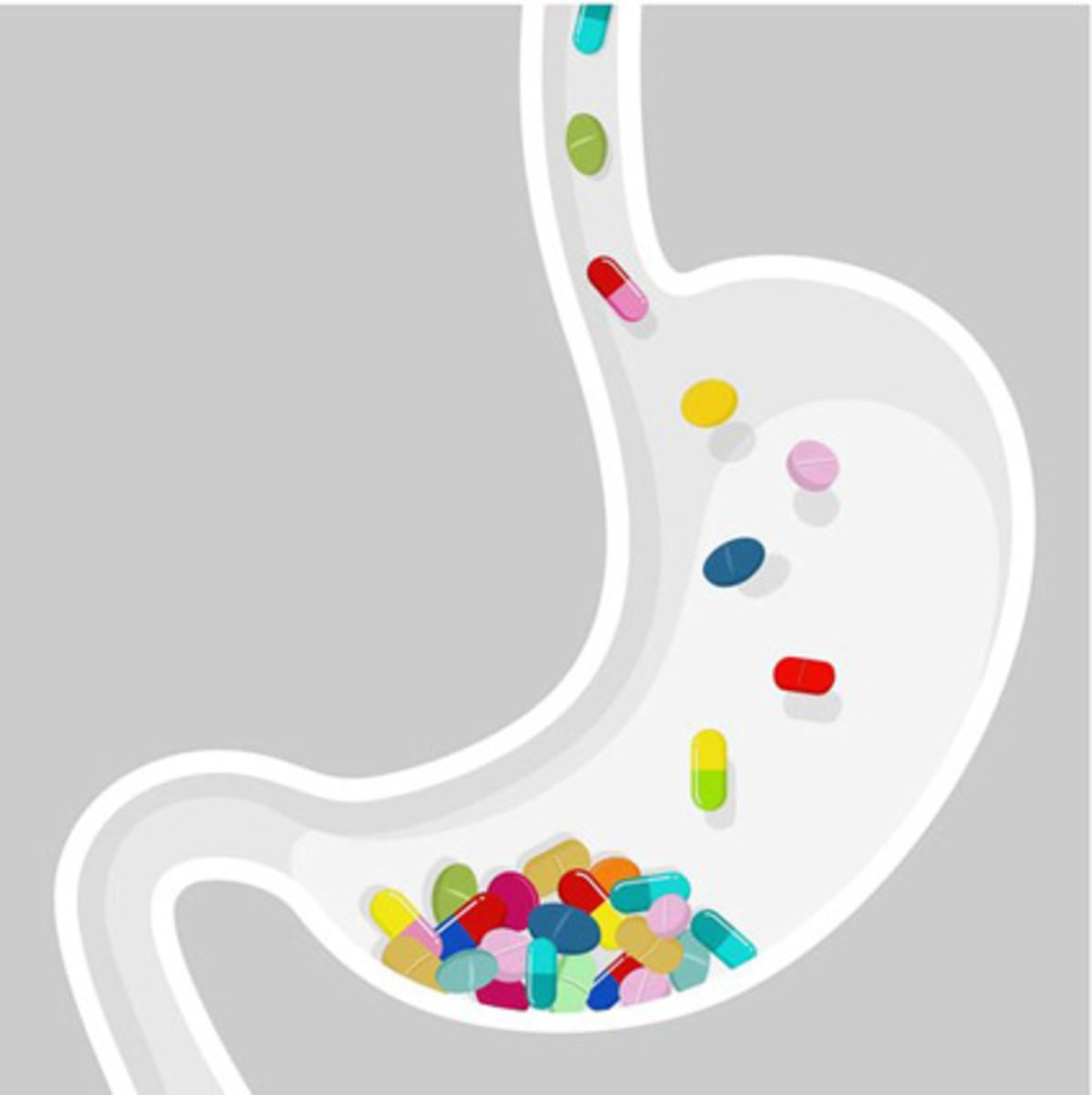Gastric Bypass Complications
The Quest to be Thin
With over 25% of the population in the US considered overweight (according to the CDC), it's no wonder there are so many people desperate for a solution. Diets fail, exercise seems more trouble than it's worth, and everyone has a secret that works for everyone but you. It's no wonder Americans are turning to surgery as a viable solution. After all, if you can't control your weight then why not force your body to do the job for you? This is why so many people are electing to have gastric bypass surgery, but is it safe?
The first thing we must realize is no surgery is 100% safe, but (and you must excuse me for this pun) what if the benefits outweigh the risks? After all, obesity leads to many diseases that can kill a person, so doesn't reducing these risks offset any surgical risks? To answer that question we will need to know what the risks are and then we will be able to make a decision which we (hopefully) will be able to live with.
The Risks of Doing Nothing
Remaining obese is a risk in and of itself. Here are just a few diseases that increase in likelihood as a person becomes overweight:
- heart disease
- stroke
- fatty liver disease
- type II diabetes
- breathing problems
- cancer
- gall bladder disease
- arthritis
And there there is the emotional impact ... Genetics and natural selection favor a healthy body. As such, we as humans are often appalled by anyone who has an unhealthy appearance. Look through pictures of people who are severely underweight or overweight and you can't help but feel a slight repulsion. Though you might tell yourself that you don't use appearance to ascertain a person's self worth, you can't help the distinctive feeling you get when looking at someone that doesn't fit a healthy profile. As such, those who are obese see themselves as ugly and unworthy, which leads to depression, binge eating, and a worsening of the condition.
If this article has become difficult to read at this point then I must apologize, as I am not entering a judgement on people who are overweight. I am only pointing out that there is a definite social price to pay for this condition, which explains the great lengths people are willing to go to fix the problem. As such, for most who suffer from this affliction, doing nothing is not an option.
How Does Gastric Bypass Surgery Work?
I are here to help you weigh the benefits and the risks, not to make a choice for you. As such, I think it wise to first understand how and why gastric bypass surgery works.
First, the stomach is made smaller by stapling it or banding it off, effectively making the stomach smaller. The reasoning behind this procedure is that what remains usable of your stomach will fill up quicker, making you feel full as you eat less. As such, you won't be tempted to eat as much as you used to.
Next, the smaller stomach is connected to the middle of the small intestine, effectively shortening the time food spends in this region. As the small intestine absorbs much of the nutrients and calories from the food you eat, this effectively allows a portion of what you eat to pass through as waste and to not be absorbed by the body.
So, in a nutshell, gastric bypass surgery prevents you from eating as much and makes it so your body only absorbs a certain percentage of what you eat. Sounds pretty safe, right? Well, read on, as there definitely are risks that need to be considered. Again, I am not trying to frighten you, I only want you to be totally informed of the risks, as there are many success stories walking around shouting out the benefits and you need to know that not all gastric bypass surgeries are successful.
The Beauty of Success
To prove this is not an article created to sway people away from Gastric Bypass surgery we will first look at the success stories.
These are the ones who, over a period of 1 to 4 years, lose up to a third of their excess weight. Please note, by excess I mean everything exceeding one's bio mass index. So, for a person 5'6" in height, this would entail a loss of 1/3rd of the weight over 154 pounds. As such, a 350 pound woman of this height could expect to lose about 50 pounds over time. That's not a huge weight loss, but it represents the benefit one typically receives from this surgery.
Of course, there are other alternatives that are more successive. The laparoscopic approach typically shows a 69% to 82% loss in excess weight loss over five years time, which is a considerably larger improvement. However, there are no guarantees, and surgery alone does not create a better body ... regardless of what others might say. Exercise, diet, and lifestyle play a large role, and can lead to better results.
Who Can Get This Surgery?
Typically, doctors won't perform gastric bypass surgery unless the following requirements are met:
- you have been overweight for more than 5 years
- you are between 18 and 65 years of age
- you don't suffer from depression or other psychiatric disorders
- you don't suffer from a problem with alcoholism
Other factors involve your health at the time of the surgery. For good reason, your doctor could refuse to perform the surgery if you have recently experienced an illness that has compromised your immunity system.
How Risky is Gastric Bypass Surgery?
Less than 10 out of 1000 die after weight-loss surgery, but that equates to 1% of all patients, so the risk isn't a minimal one. Some of the complications that may occur after this surgery are:
- iron and b12 deficiencies occur 30% of the time and 50% of those who develop an iron deficiency go on to develop anemia
- the staples could come loose
- you could develop a hernia
- the connector between the stomach and the small intestine could narrow, which could cause nausea and vomiting after eating (occurs 5%-15% of the time)
- ulcers can occur - happens 5% to 15% of the time
Recovering From the Surgery
Recovery typically takes 3-5 weeks. Also, there will be many lifestyle changes. For one, you will only be able to eat small portions as your stomach will fill quickly. Also, with a smaller stomach, you won't be able to enjoy beverages while you eat your meals, as there won;t be enough room for food and drink.
Vitamins and supplements will become a part of your daily routine, allowing you to replenish the vitamins and nutrients lost due to the shortened path food follows through the small intestine. Also, you will need to pass on simple sugars, as these can cause a post surgery condition known as dumping syndrome, where your body moves food too fast through the stomach and intestines. This can cause shaking, severe diarrhea, dizziness, sweating, and rapid heart rate. Also, you will need to chew your food thoroughly to prevent vomiting and stomach pain.
Unfortunately, while the recovery time is short, you will endure these conditions for the rest of your life. Still, for some it's all worth the risk.
Is Gastric Bypass Surgery for You?
I've done my best to present all of the facts while trying not to persuade you either way. You see, this is a decision you must make for yourself and the more informed you become, the better your decision will be when you make it.
If I thought gastric bypass surgery was unsafe for anyone I would have written an article saying such and never spoke of any benefits. However, had I believed it to be totally safe I would have told you to go for it. As such, I'm on the fence on this one, which is why I believe the final decision must lie soundly within your hands.
So, my advice for you is to learn what you can before considering such an operation and not to place all of your trust in one single article - even if it's mine. Also, keep your mind open to other alternatives, as modern medicine is advancing quickly, creating other alternatives that will become more viable over time. Also, current surgeries such as this one are periodically revamped to lessen the risks. As such, become informed, consult the opinion of several doctors, and only consider this alternative when you are certain the benefits outweigh the risks.
And so, I will stop here and wish you a long and healthy life. :)
Was This Article Helpful?
Looking For More Info On Gastric Bypass Surgery Complications?
- Gastric Bypass Surgery Gone Bad - CBS News
Study: 1 In 50 People Die Within A Month Of Surgery - Gastric Bypass Surgery Health Dangers
Health Dangers of Gastric Bypass Surgery





